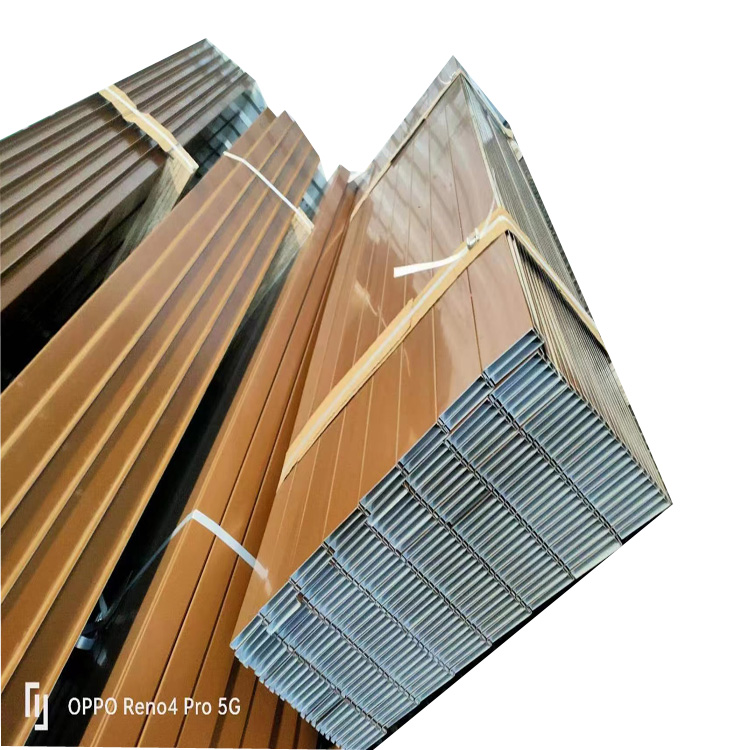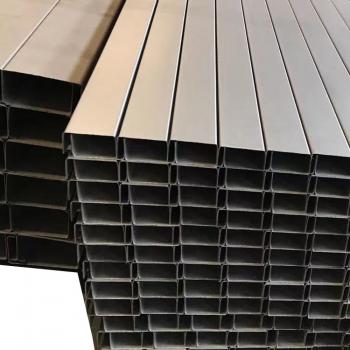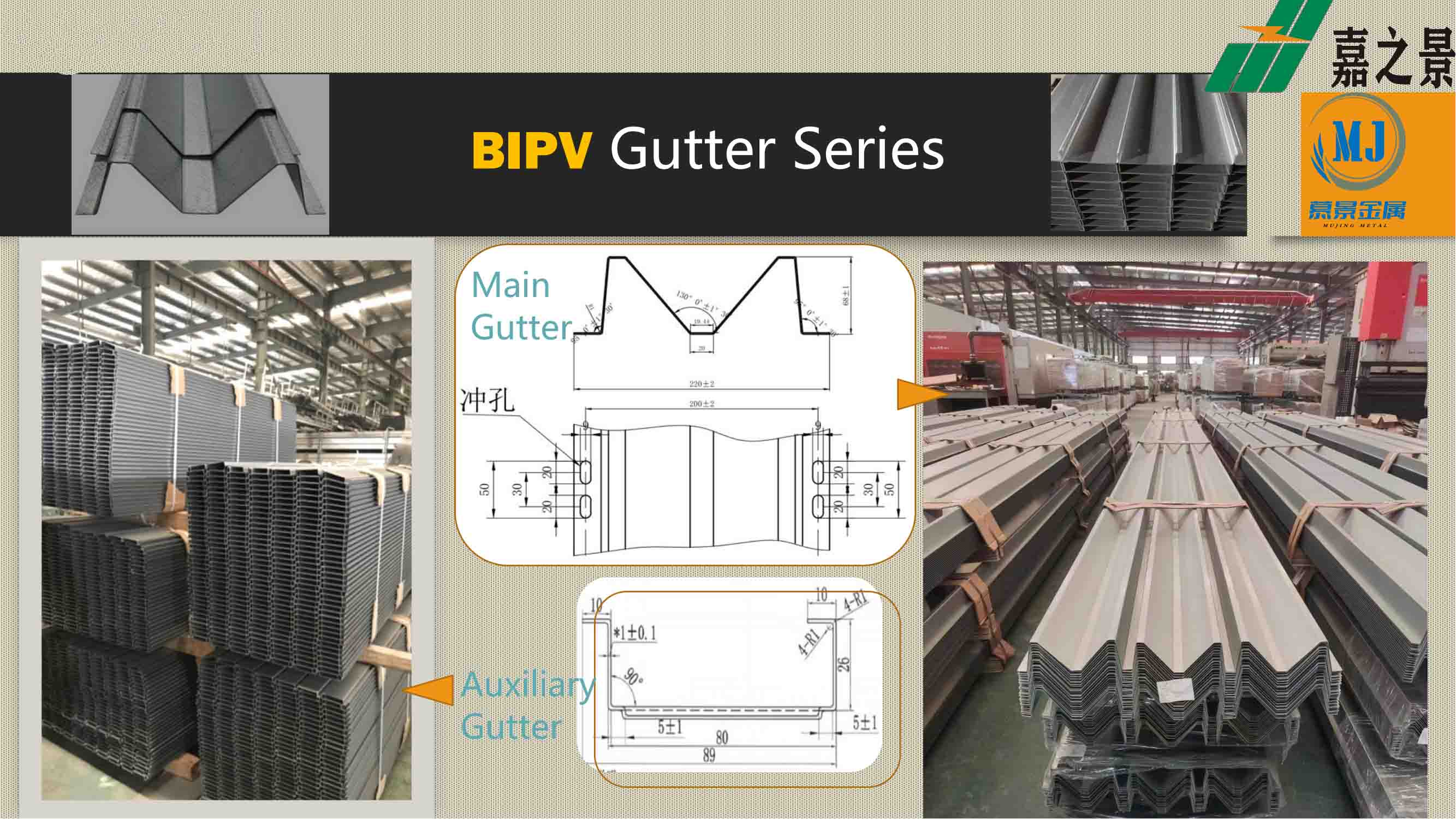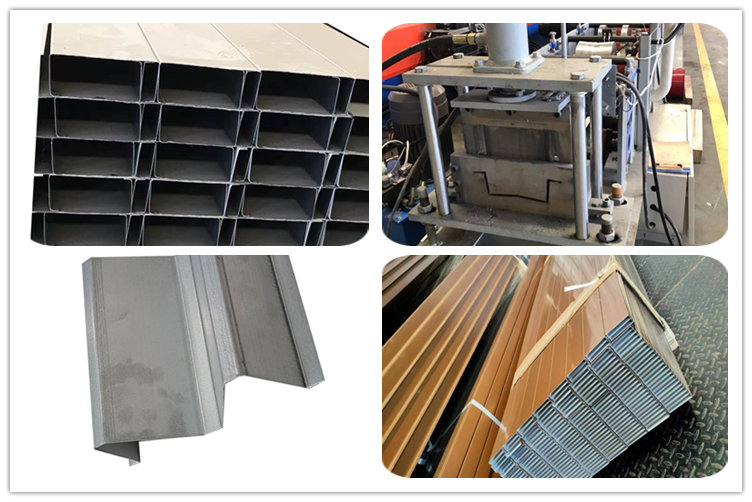 +86 15959271231
+86 15959271231 xmjiazhijing@126.com
xmjiazhijing@126.com


 +86 15959271231
+86 15959271231 xmjiazhijing@126.com
xmjiazhijing@126.com






Main gutter width: 220mm
Main gutter height: 68mm
Auxiliary gutter width: 89mm
Auxiliary gutter height: 26mm
Hole size: Φ9*20mm
| Main Gutter Width | 220mm |
| Main Gutter Height | 68mm |
|
Auxiliary gutter width |
89mm |
|
Auxiliary gutter height |
26mm |
|
Hole size |
Φ9*20mm |
| Suitable Material | Q235, Q355, Zn-Al-Mg coated steel coil |
| Avaliable Material Thickness | 0.6-0.8mm |
| Surface Treatment | Zinc coated at 60-80u, according to end user's requirements |

BIPV building integration is safer than directly installing photovoltaic panels. Although it is simple to directly install photovoltaic panels, the integration between photovoltaic panels and buildings is not high enough, and direct installation of photovoltaic panels is only limited to roof use, and there are certain requirements for the size, slope, lighting, etc of the roof. But BIPV is different. Due to the high degree of integration and integration of materials, it can not only meet the lighting requirements of the building, but also integrate well with the building, making it safer and more reliable.
Various existing green building technologies can only save energy and reduce consumption of buildings, but cannot enable the building itself to generate energy. While BIPV technology can save energy and reduce consumption, it can also generate electricity and produce clean energy, thereby meeting the zero energy consumption of the building and making the building truly carbon neutral.
Compared with other green building technologies and green building products and equipment, BIPV technology and photovoltaic green building materials are not the most expensive. Photovoltaic green building materials can generate clean electricity, save electricity bills for buildings, and can recover costs. From a full life cycle perspective, they are more cost-effective than other green building materials.
Except for components and part of the water conduction system, other components in the BIPV system are in a relatively good sealing environment and have a longer service life than conventional color steel tile roofs. At the same time, because the BIPV system needs to be combined with the properties of building materials, hydrophobic glass panels need to be specially used with the main water tank, waterproof seal, etc. to form a roof anti-drainage system during the construction process, so as to avoid water leakage hazards as much as possible during the entire use cycle.

Material: Aluminum is a popular choice for its lightweight yet durable properties, making it ideal for BIPV installations.
Size and Shape: Aluminum gutters for BIPV systems typically come in standard sizes such as 5-inch or 6-inch widths, with various shapes like K-style or half-round.
Thickness: The thickness of aluminum gutters can vary, but a commonly recommended thickness for BIPV systems is around 0.5mm to 0.0.8mm, ensuring sufficient strength and longevity.
Coating: Look for aluminum gutters with a protective coating, such as polyester or baked-on enamel finish, to enhance their resistance to weathering, corrosion, and UV radiation.
Color Options: Depending on your preference or project requirements, aluminum gutters can be available in a range of colors to match or complement the building's aesthetic.
Mounting Options: Consider gutters that offer versatile mounting options, allowing for easy integration with BIPV systems while maintaining a sleek and seamless appearance.s, so as to avoid water leakage hazards as much as possible during the entire use cycle.